Quaker parrots are gorgeous with their vibrant plumage, expressive eyes, and distinctive facial markings. As beautiful as they are, Quaker parrots can be troublesome for your garden and lawn. Breeding and raising a Quaker parrot isn’t legal in many cities and countries.
But why are Quaker parrots illegal in some states? As Quaker parrots breed fast, they are considered an invasive species. They threaten other native species and crops and cause structural damage.
Besides, Quaker parrots can spread disease and become particularly noisy. Therefore, Quaker parrots have been made illegal to avoid the wild population and protect other species.
Want to learn more? Let’s get into the details.
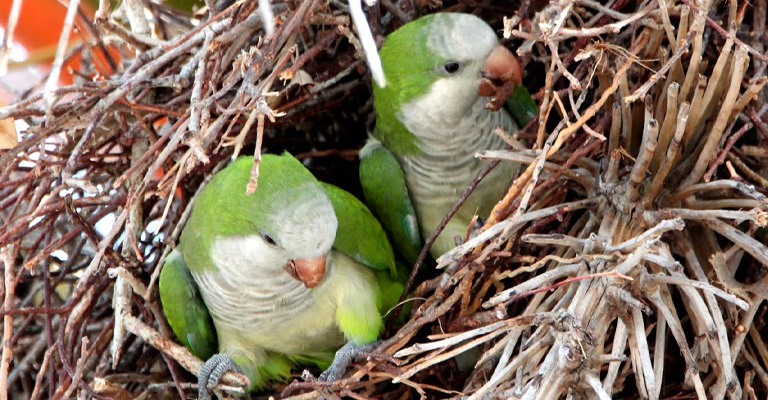
6 Reasons Why Quaker Parrots Are Illegal in the States
Since 2013, keeping Quaker parrots as pets and breeding has been illegal. From their invasive nature to risks of disease transmission, the reasons why these birds are banned often vary. Here are 6 common reasons-
Invasive Species Concerns
One of the primary reasons why Quaker parrots are illegal in some states is their potential to become invasive species. Quaker parrots are highly adaptable and can establish wild populations in new environments.
There have been cases where escaped or released Quaker parrots have formed feral colonies, sometimes competing with native bird species for resources and nesting sites. Concerns about their impact on local ecosystems have led to their prohibition in some areas.
Agricultural Threats
Quaker parrots have a strong affinity for crops, especially grain crops like corn and sunflowers. In states with significant agricultural industries, the potential damage caused by Quaker parrots to crops can be substantial.
Their feeding habits can result in economic losses for farmers, leading to restrictions on their ownership and possession.
Nesting Habits and Structural Damage
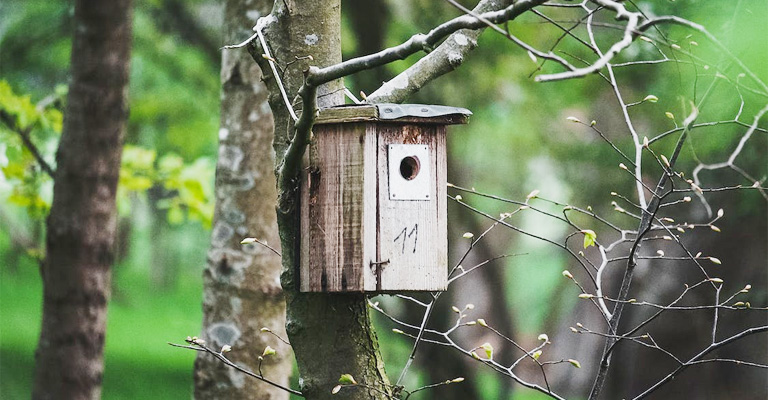
Quaker parrots are known for their unique communal nesting habits, constructing large nests made of twigs and branches. These nests can become extensive and are often built on utility poles, power lines, and communication towers.
The accumulation of nesting materials and the birds’ habit of chewing on wires can risk electrical infrastructure and cause power outages. As they possess the potential to damage public infrastructure, the associated costs have contributed to the prohibition of Quaker parrots in some states.
Potential Disease Transmission
Another concern associated with Quaker parrots is the potential transmission of diseases to other birds and even humans. While Quaker parrots may not be particularly susceptible to diseases, they can act as carriers or reservoirs for various pathogens.
The risk of disease transmission, especially to native bird populations, has been cited as a reason for their prohibition.
Noise Complaints
Quaker parrots are vocal birds known for their loud and persistent calls. While endearing to some, this characteristic can become a nuisance in residential areas.
Their vocalizations, especially when they form large flocks, can generate noise complaints from neighbors and disrupt the community’s peace. The potential for noise disturbances has led to restricting Quaker parrots in certain states.
Legal Precedent
In some states, the illegality of Quaker parrots stems from legal precedents set in the past. When laws were drafted to regulate exotic pet ownership, Quaker parrots were included in the list of prohibited species due to concerns over their potential impacts on agriculture, infrastructure, and ecosystems.
Over time, these laws have remained in place, leading to the continued illegality of Quaker parrots in those states.
In Which States Keeping Quaker Parrots Is Illegal?
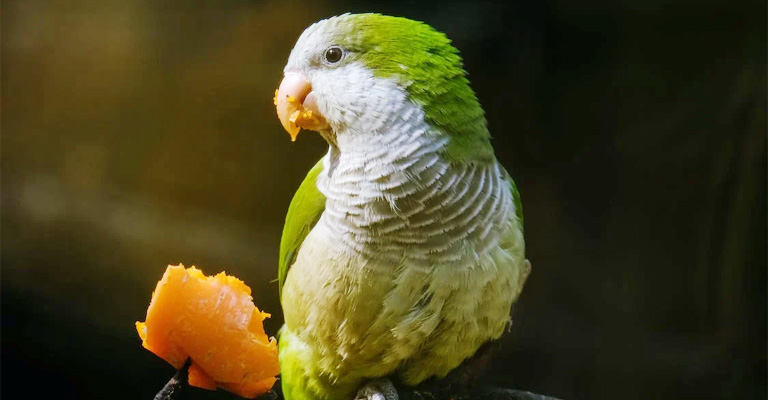
The legality of keeping Quaker parrots as pets varies from state to state within the United States. Several states have enacted legislation or regulations prohibiting Quaker parrots’ ownership, sale, or possession. Some of these states include-
California
Quaker parrots are illegal to keep as pets in California. They are listed as restricted species under the state’s laws, prohibiting their importation, possession, sale, and release into the wild.
Connecticut
Connecticut is another state where Quaker parrots are illegal. The state’s Department of Energy and Environmental Protection has classified Quaker parrots as invasive species and included them in the list of prohibited animals.
Georgia
In Georgia, Quaker parrots are illegal to possess as pets without a special permit. The Georgia Department of Natural Resources considers them a potential threat to agriculture, natural resources, and public health.
Hawaii
Hawaii, with its unique ecosystem and delicate balance of native species, has strict regulations regarding the ownership of non-native animals. Quaker parrots fall into this category and are, therefore, illegal to possess as pets in the state.
Kansas
Kansas is another state that prohibits possessing and selling Quaker parrots as pets. The Kansas Department of Wildlife, Parks and Tourism has designated them illegal species due to concerns about their potential impact on crops.
New Jersey
In New Jersey, Quaker parrots are listed as prohibited species under the state’s exotic animal regulations. The state’s Division of Fish and Wildlife considers them a potential threat to agriculture and natural resources.
Are Quaker Parrots Legal in Any States?
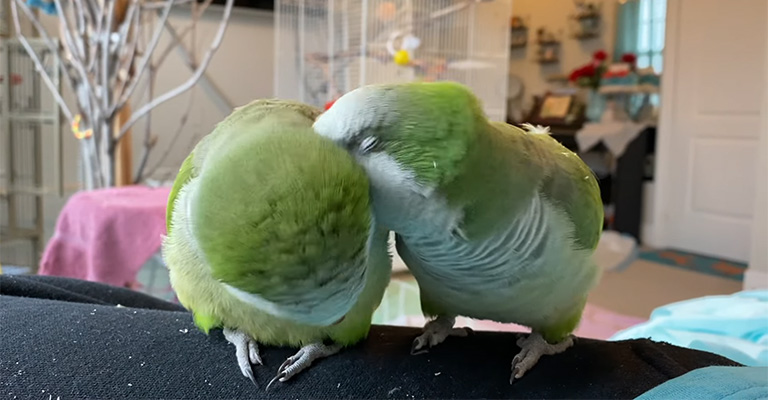
While Quaker parrots are illegal in some states, it’s essential to note that they are legal to keep as pets in several other states. Many states allow the ownership and possession of a Quaker parrot without significant restrictions. These states include:
Florida
Florida is known for its relatively lenient regulations on exotic pet ownership. Quaker parrots are legal to possess as pets in the state, although it is critical to comply with local ordinances and regulations.
Texas
Quaker parrots are generally legal to keep as pets in Texas, as they are not explicitly listed as prohibited species. However, it is advisable to consult local regulations and authorities for specific restrictions or requirements.
Illinois
Illinois is another state where Quaker parrots are legal to possess as pets. However, it is essential to note that local municipalities may have regulations, so it is essential to comply with them.
Pennsylvania
Pennsylvania allows the ownership and possession of Quaker parrots as pets without significant restrictions. However, it is always advisable to check with local authorities to ensure compliance with local ordinances.
Arizona
Quaker parrots are legal to keep as pets in Arizona. However, adhering to any regulations set by local jurisdictions within the state is crucial.
What to Do with an Illegal Quaker Parrot?
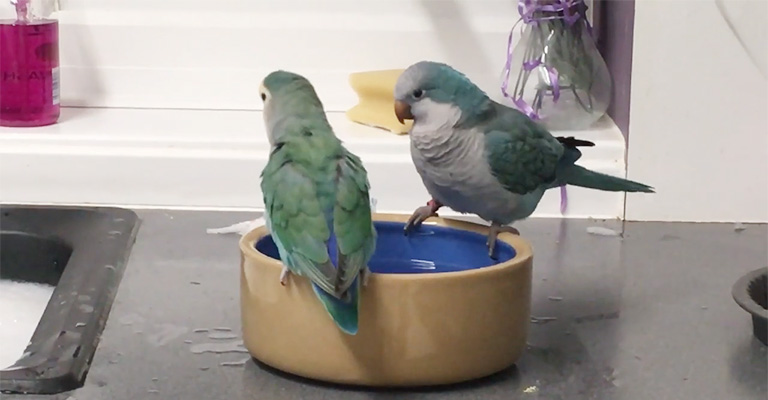
If you find yourself possessing an illegal Quaker parrot, it is essential to take appropriate steps to ensure the bird’s well-being and comply with the law. Here are some options to consider:
Surrender to a Licensed Facility
Contact local wildlife rehabilitation centers, aviaries, or animal shelters to inquire about their policies on accepting illegal or unwanted pets. These licensed facilities often have the necessary permits and expertise to care for such animals appropriately.
Seek Legal Advice
Consult with an attorney or legal expert knowledgeable in exotic pet laws in your jurisdiction. They can guide you on the best course of action and help you navigate the legal process if necessary.
Responsible Rehoming
If surrendering the bird to a licensed facility is impossible or appropriate, explore alternatives for responsible rehoming. Reach out to avian rescue organizations or bird enthusiasts who may be experienced in caring for Quaker parrots and willing to provide a suitable home.
Compliance with Legal Requirements
If keeping the Quaker parrot is your intention, make sure to abide by the laws and regulations in your state. Obtain any necessary permits or licenses, and ensure proper care, nutrition, and housing for the bird.
Final Words
So, now you know why Quaker parrots are illegal in some states. The reasons behind their illegality vary, including concerns about invasiveness, agricultural threats, nesting habits, disease transmission, noise complaints, and legal precedent.
If you find yourself with an illegal Quaker parrot, consider surrendering it to a licensed facility, seeking legal advice, or responsibly rehoming the bird.
Remember, respecting and abiding by the law is crucial for these charming creatures’ welfare and our environment’s preservation.